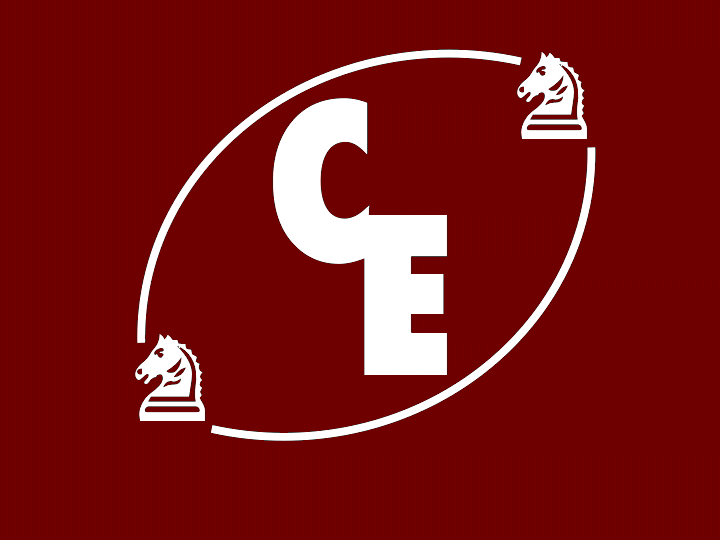Rare Dedicated Chess Computers
Mephisto (H&G) World Machine (WM) Vancouver (68030RC50B)
Written by MMO
First
edited | 01/26/2014 |
by MMO
Last edited |
07/12/2016 |
Additional Information: original photos from the ChessEval
collection © MMO 2014 -
Other Information: Computer
History Museum;
chessgames.com;
Wiki-Elo-List;
This World Machine (WM) is exceptional, unique... one of the
kind.
It was owned by Hegener himself.
t was part of the shipping package to Vancouver under the number Three.
More details...
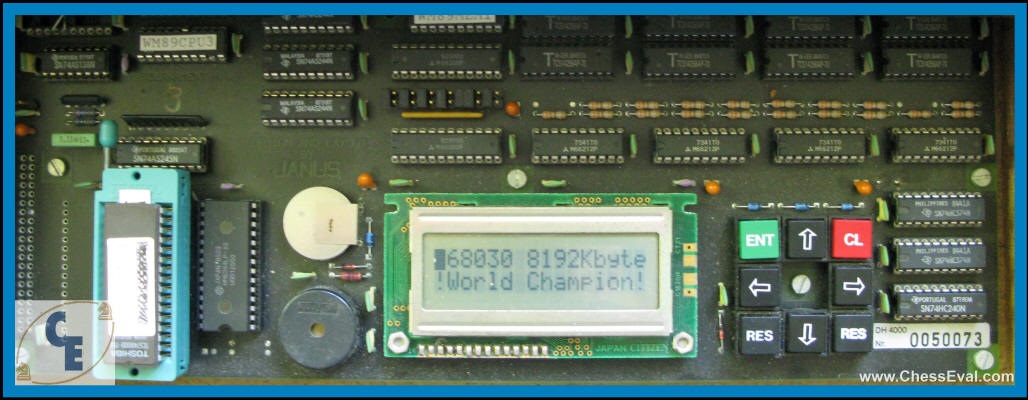
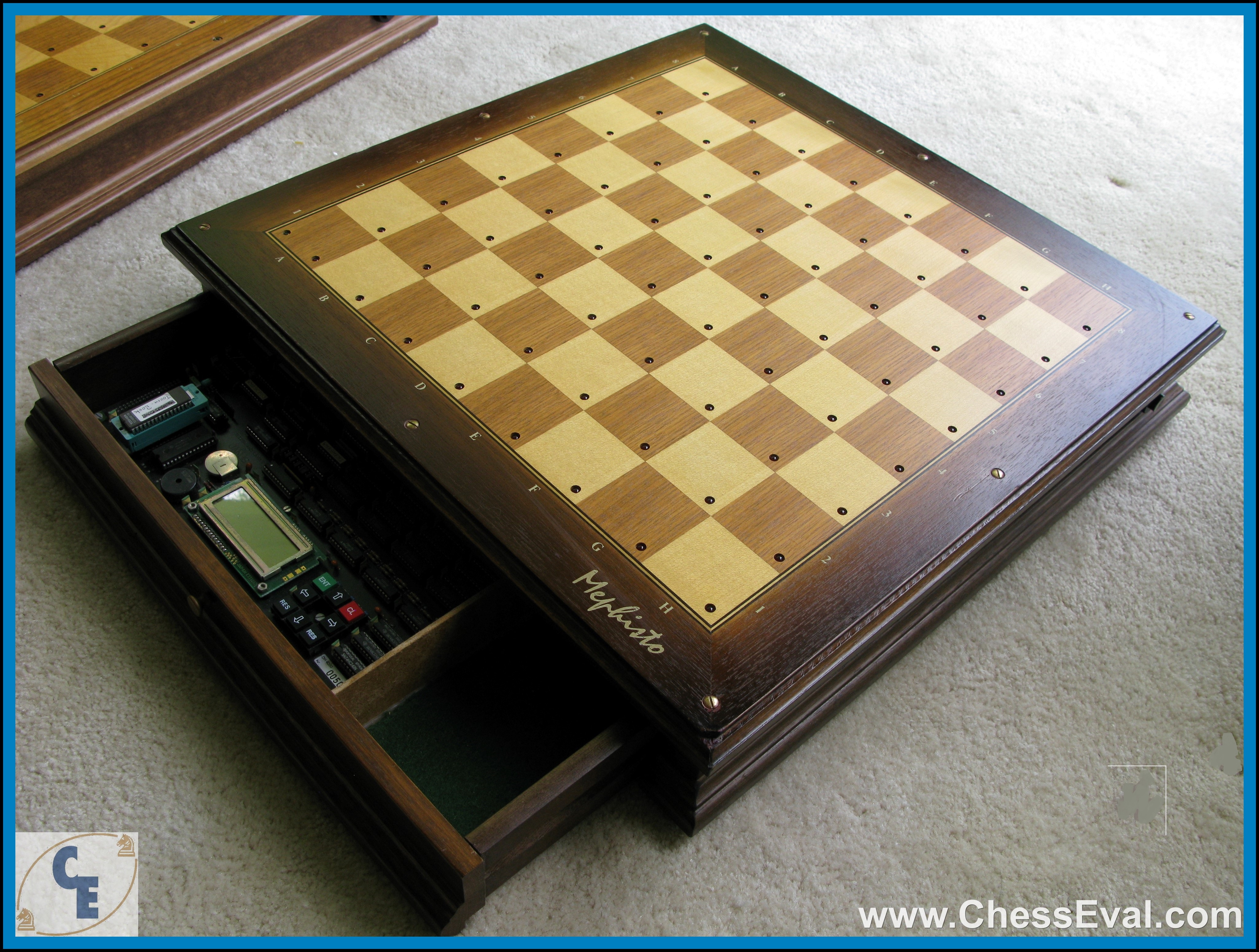
Description
This unit has participated in the 1989 (Portorose), 1990 (Lyon)
and 1991 (Vancouver) World Microcomputer Chess Championship (WMCC and
in other competitions as attested by the
shipping labels and writings on its original box and enclosures (see photos below).
The
wooden housing board is based on the ESB board 6000.
A special
power connector (Motorcycle Power Connector BMW) is linking the
computer to a 5015 HG adapter.
On the side of the computer, there is a
on/off push button.
Three fans and a metallic plaque under the printed circuit
ensure an adequate cooling system (see photos below).
This computer is perfectly working and in excellent esthetic
shape.
The special library
"Tournament" is inside of a 256KB EPROM, plugged in the fast removable EPROM socket.
The processor is a Motorola 68030RC50B, 32 bits,
probably tuned at different speeds depending on the year of
competition.
In its present state, the microprocessor is tuned at 66 MHz
and it runs the Vancouver program
of Richard Lang.
Eight screws maintain the plateau in place on the frame.
They are easily unscrewed giving an immediate access to all the
components of the Printed Circuit Board (PCB) and to the
electrical power circuit.
In the original box, was
enclosed
a manual for the "Vancouver 68030", the same than the one coming
with the Vancouver TM 68030.
The packaging of
the device is complete with its internal polystyrene.
The
Mephisto World Machines (WM) were custom-made for the WMCC
between 1989 and 1991.
The
drawer
hosts the main PCB with 8 MB of RAM.
"World Machines" (WM), the
"Tournament Machines" (TM) and the "Series Modules" (SM)
The WM devices were made specially to compete for the WMCC.
It is why they are often called WM in opposition with the
Tournament Machines (TM).
The TM were mounted inside of an ESB Board and the PCB was
hidden behind a black elegant plaque with windows for the
display and the keyboard.
The TM were less powerful than the WM: their microprocessor had
a speed of 36 MHz; the amount of memory was 4 MB of RAM (8 MB in
the WM version).
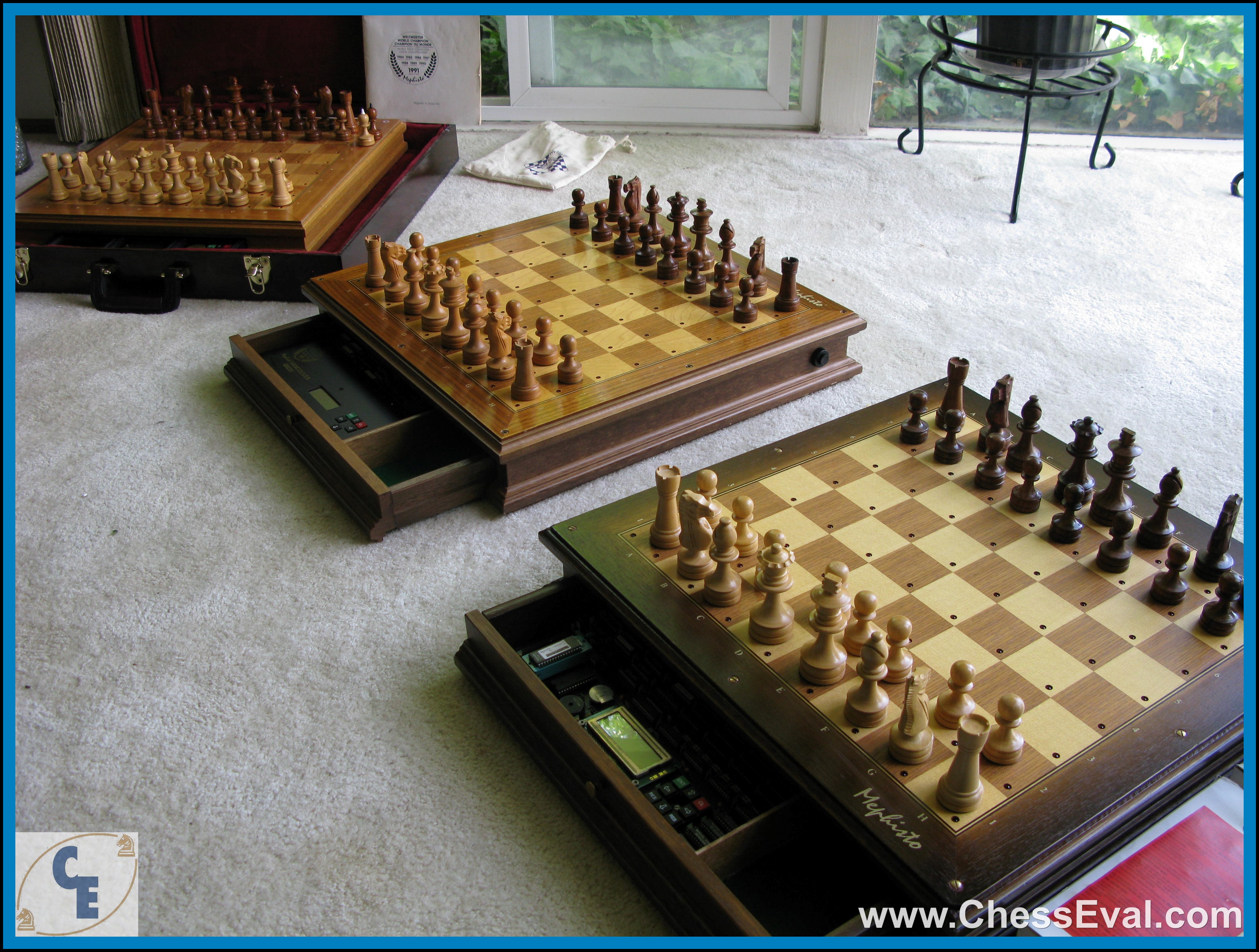
Mephisto Vancouver 68020 in Bavaria board (top), Mephisto TM
68030 (center) and the Mephisto WM 68030RC50B
(bottom).
WM and TM differed greatly from the 32-bit "Series Modules"
(Motorola 68020, 12 MHz, 1 MB of RAM) which were
significantly slower compared to the TM and the WM.
The prices varied considerably between these different versions:
a TM (Portorose - Vancouver, 68030 with 36 MHz) was sold around
7500 Euros and a WM around 12500 Euros.
The TM were produced in small quantity: between 25 and 50 devices.
The WM were sold after the competitions, but very few units were
ever produced: 6 to 7 devices according to Wikipedia.
However,
this number could be inexact and much lower because the engineers were reusing the
same WM from one competition to the other. This was avoiding
them to spend too much time on endless tests to verify the
stability of the computers.
The WM were
numbered and identified by a label.
This computer has the number
3 and its serial number is <<HR 4000 - 0050073>>. The serial number HR 4000
corresponds to the ESB board series.
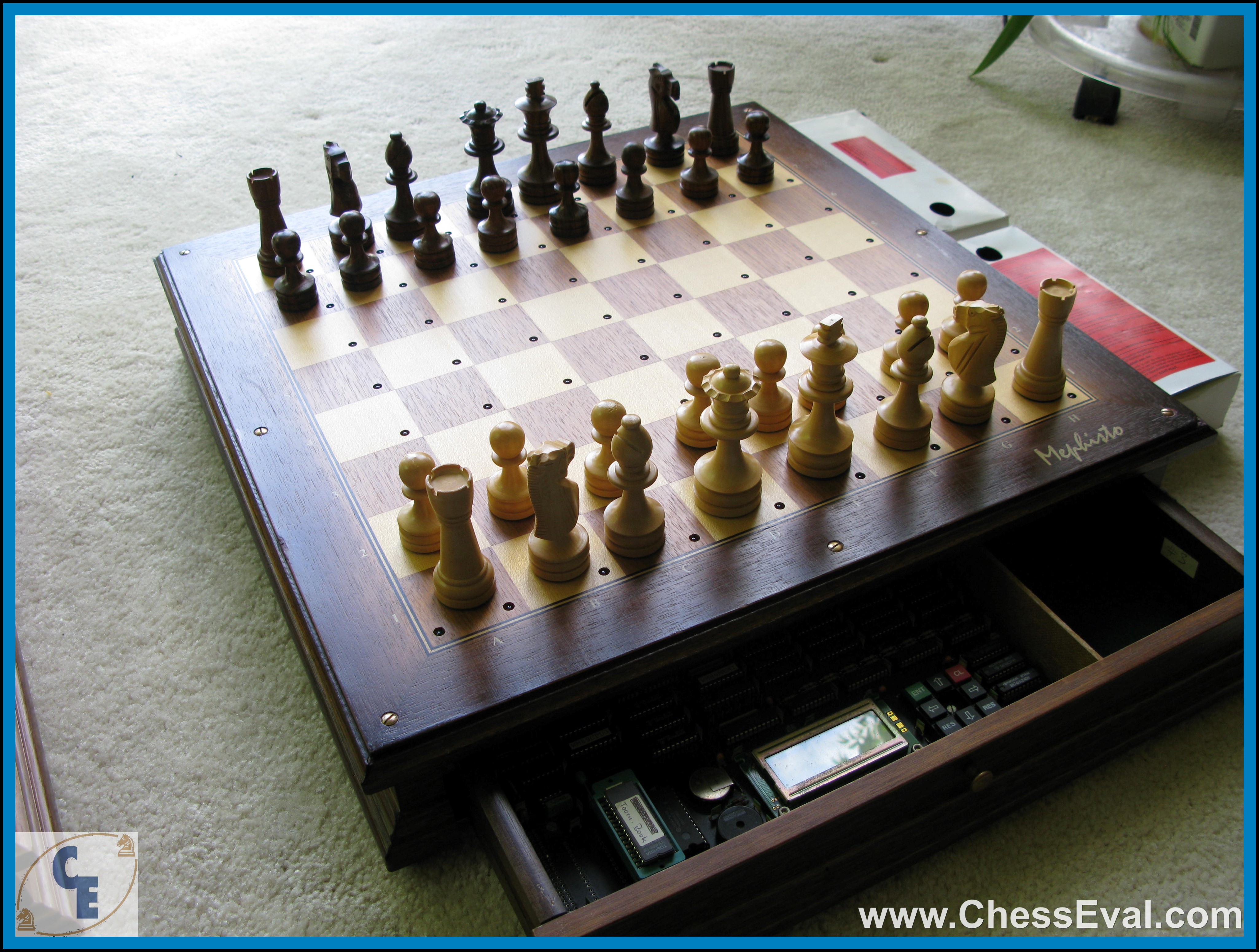
The heart of the WM: the microprocessor Motorola 68030 RC 50B
Originally, the microprocessor in the WM was a 68030 Motorola
with a speed of 50 MHz (68030RC50B).
This microprocessor was
tuned by H&G engineers at different speeds.
The WM had not the
black metallic cover of the TM to allow the
engineers to access easily to the hardware during the competition. It is why each WM is unique: each
one was tuned with different speeds.
According to Wikipedia,
two or three devices were tuned at 50 MHz and were playing at the World
Championships in Portorose in 1989 and in Lyon in1990.
Probably,
2 or 3 units tuned at 60 to 62 MHz were participating at the
World Championships in Vancouver in 1991.
Two or three units were clocked at 66 MHz after the
championship.
It doesn't mean that HG engineers
were making 6 to 9 computers.
This computer is the proof that
the same computers were used from one competition to the
other.
That is perfectly understandable: few components needed to be upgraded.
Moreover, it is always better to have
tested multiple times the same machine than to start from the
beginning all the tests with a new computer.
According to the labels attached to the box of this computer, only
three computers were sent to the World Championship in Lyon in
1990.
This computer (the number 3) has travelled a lot participating to
several competitions since 1990 (see the notes and photos below).
Its last travel for H&G seems to have been in 1992.
It remained the property of the Hegener family until recently.
It was kept inside of its original shipping box used to send it to
different places.
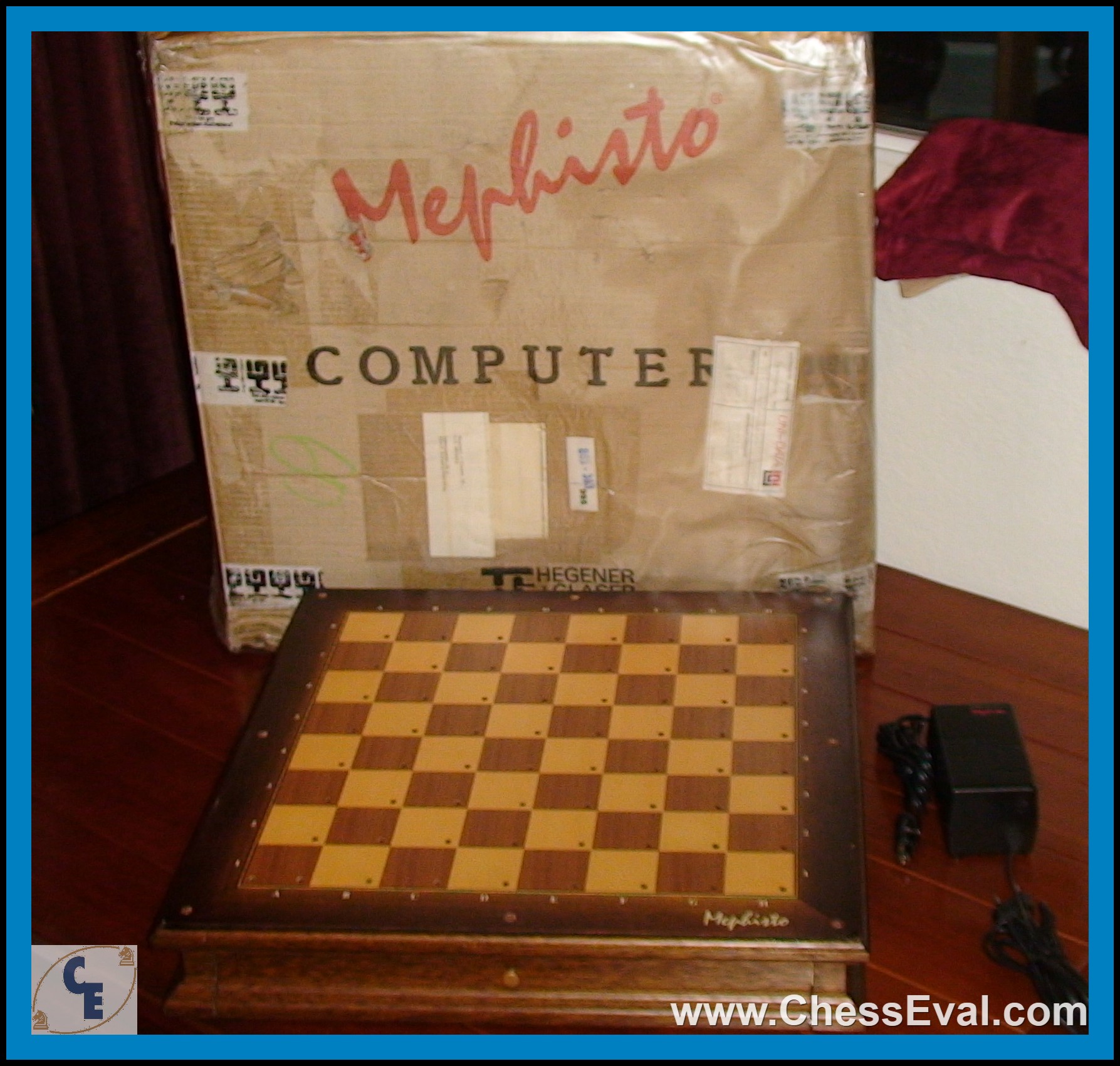
|
HR 4000 - 0050073
World Machine
Characteristics |
- World Machine (WM) version
- 1990
- Processor: Motorola 68030RC50B, 32 bits
- RAM: 8 MB
- EPROM: 256KB removable (quick remover/plugin socket)
- Program Vancouver by Richard Lang
- Three fans
- Metallic plaque on the bottom to reduce the heat.
- Board: 50x50x9.5 cm, 64 LEDs
- Adapter: HGN 5015
- Id Number:
HR 4000 - 0050073
- Price: 25000 Marks (around 12500 Euros)
- WMCC Portorose (1989), WMCC Lyon (1990), Vancouver (1991)
|
About this computer...
This computer was own by Hegener until recently.
In the box, 2 handwriting notes: WM89 (Portorose), WM90
(Lyon).
Three WM were sent to the WCC in 1990 according to the postal label
on the box.
It runs presently the Vancouver program.
The EPROM is labeled Tournament Book.
|
The HR 4000 05073 WorldMachine Number 3 (WM90 #3): Journey around the World
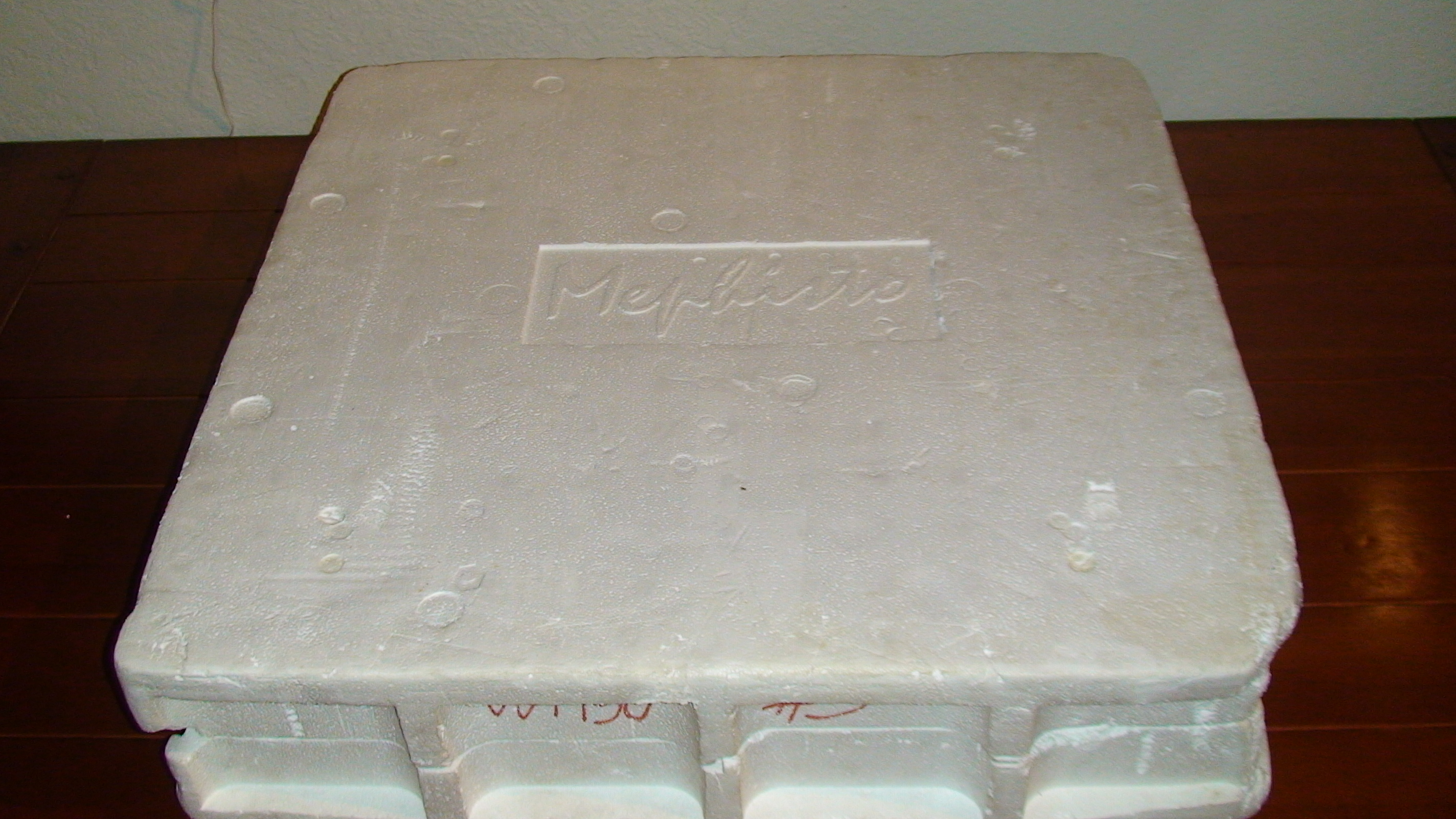
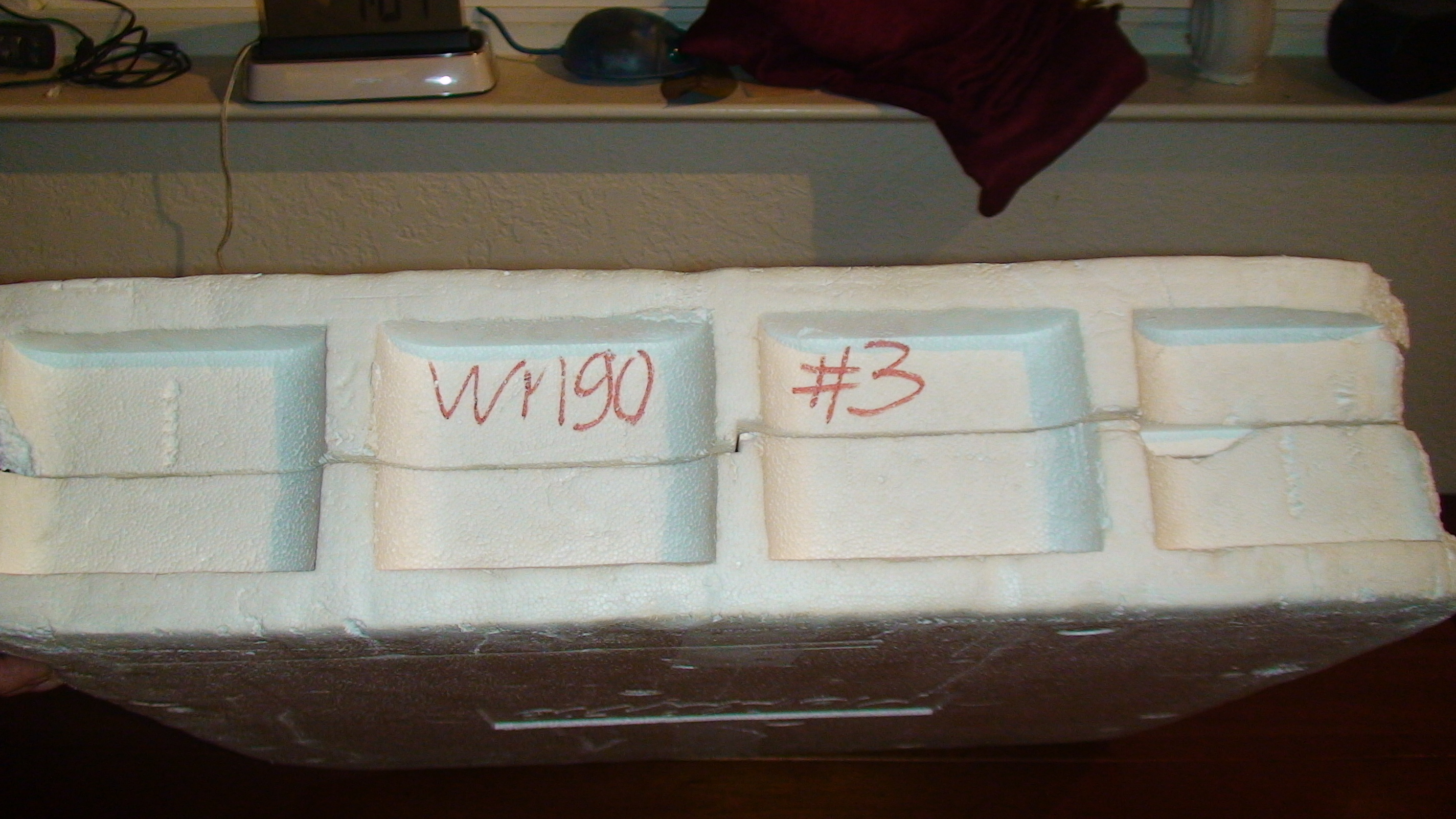
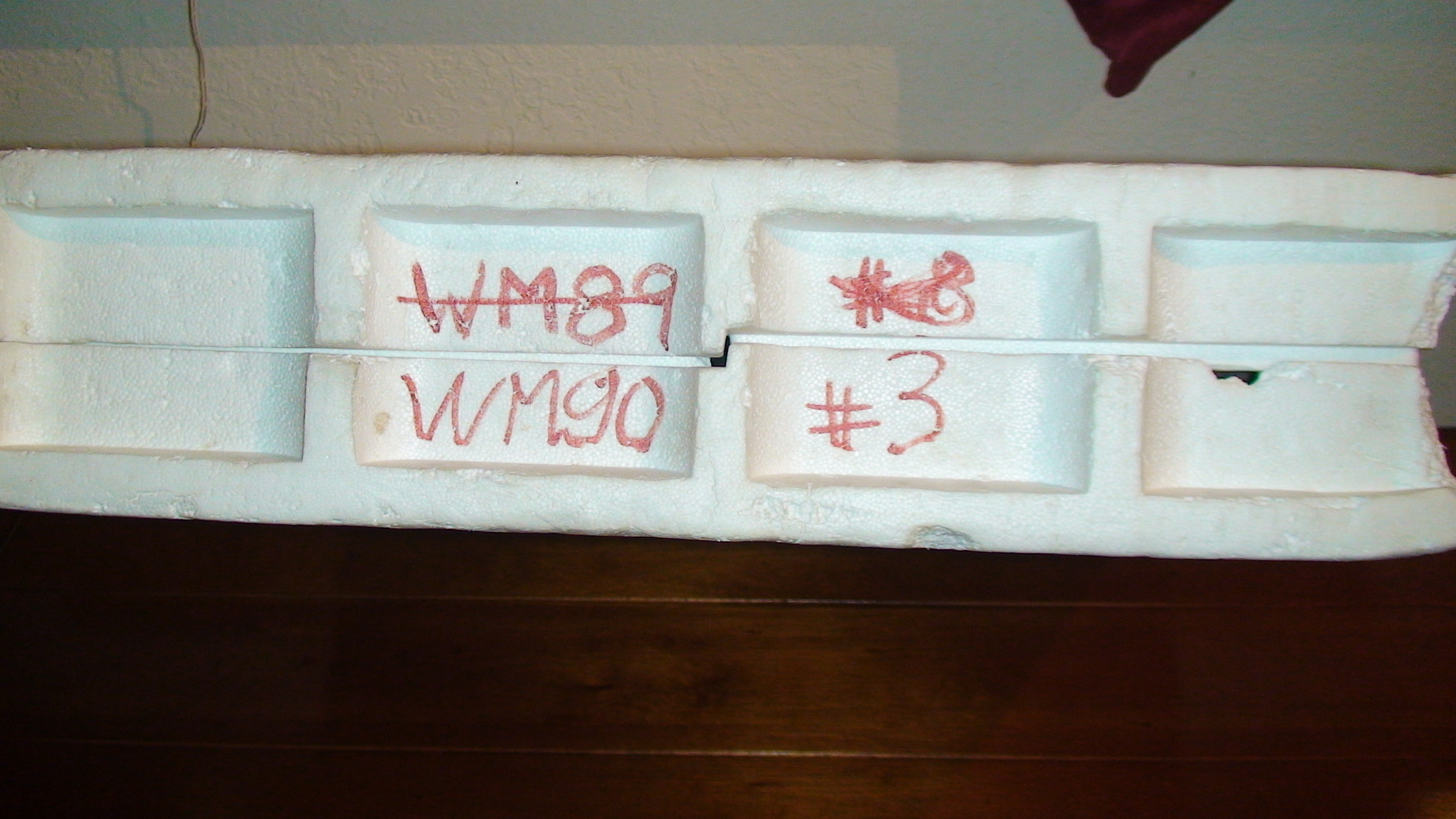
Handwriting on
the polystyrene: "WM89 #3" (World Machine 1989) is strikethrough and
"WM90 #3" (World Machine 1990).
The mention "WM89 #3" is strikethrough.
This indicates that H&G were "re-using" the same computers, upgrading them
from one WMCC to the following.
The WMCC 1989 was in Portorose, the WMCC 1990 in Lyon and the WMCC
1991 in Vancouver.
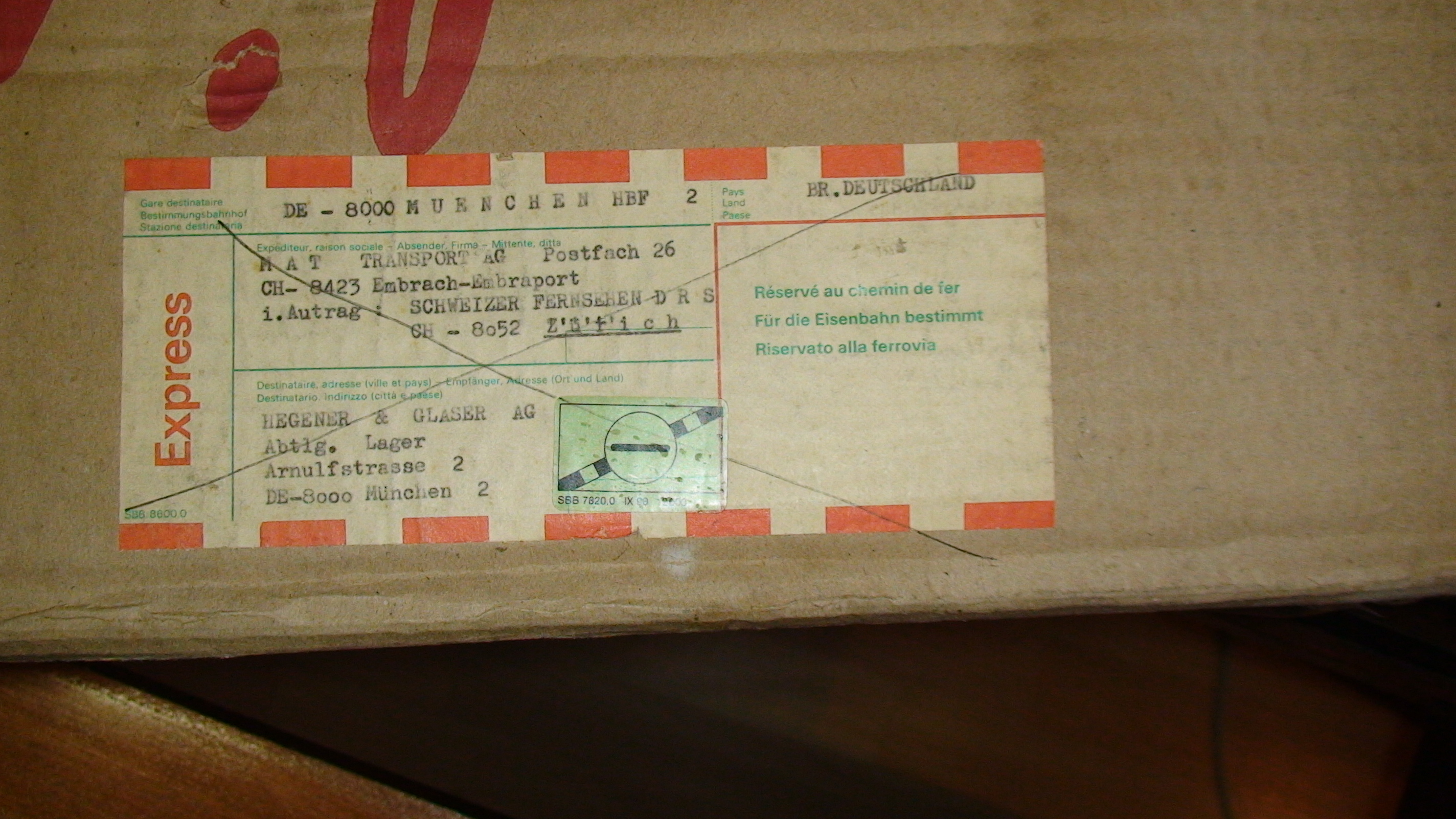
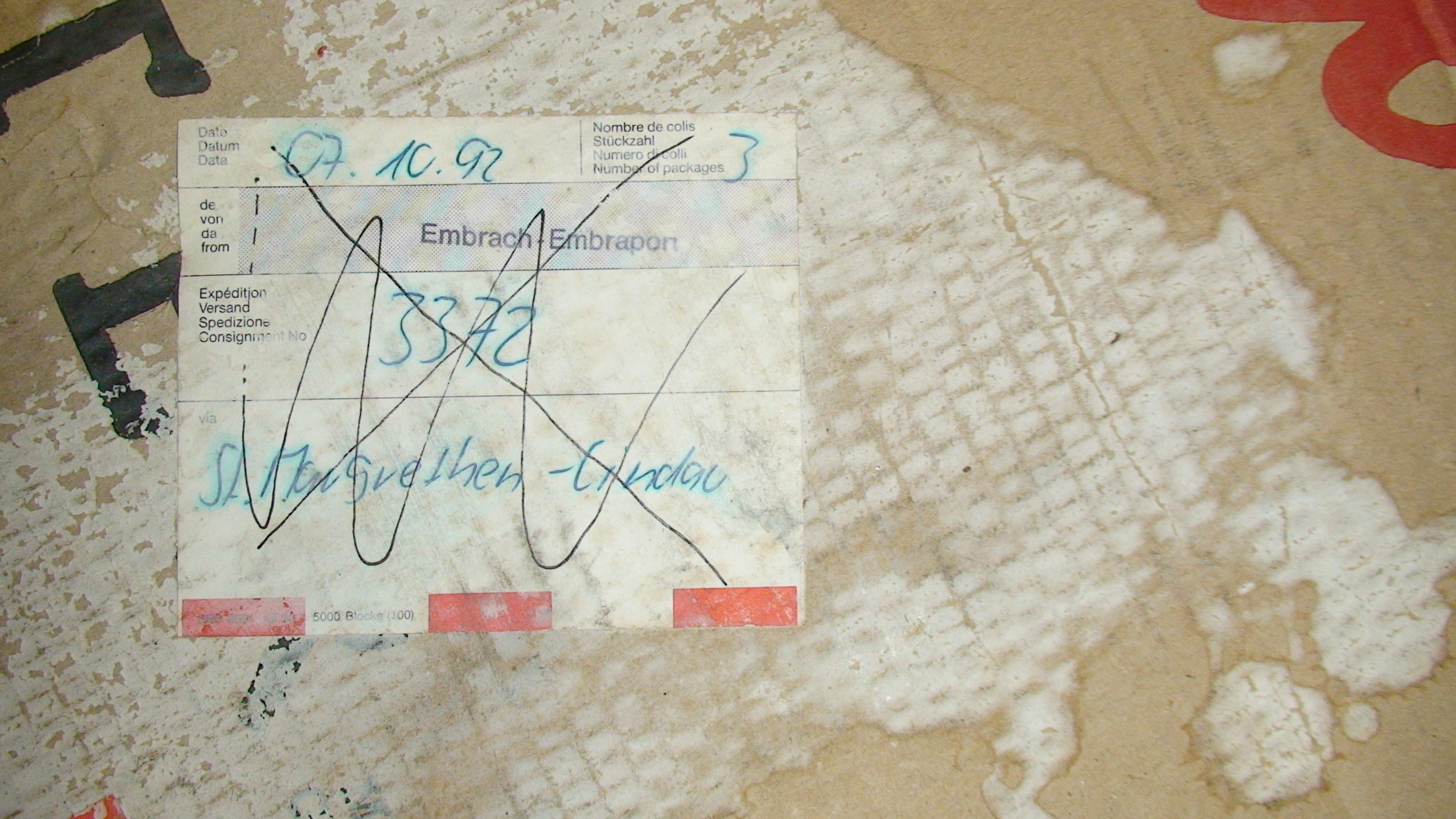
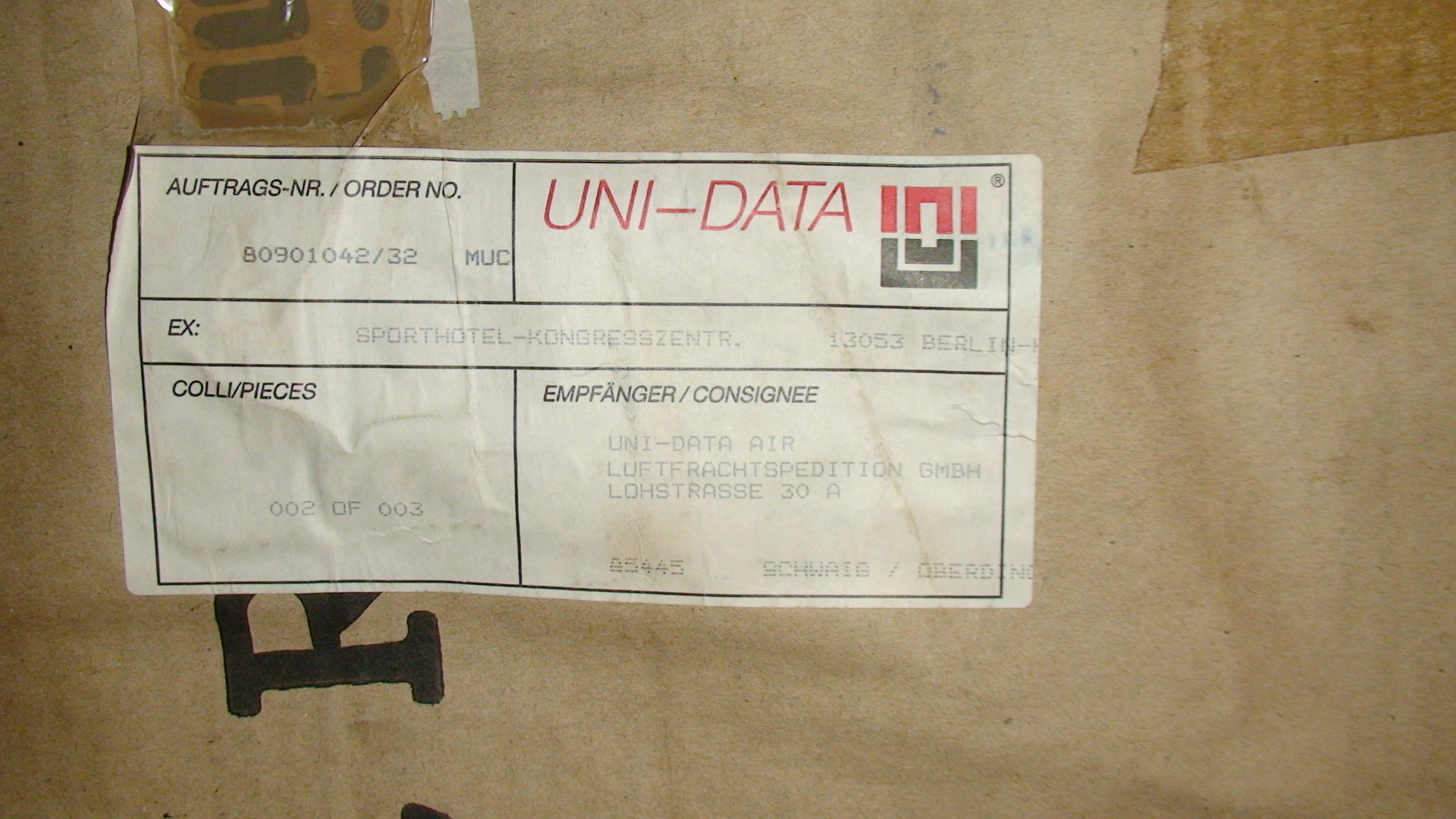
The third label shows that this computer was part of the shipment of
a group of 3 computers.
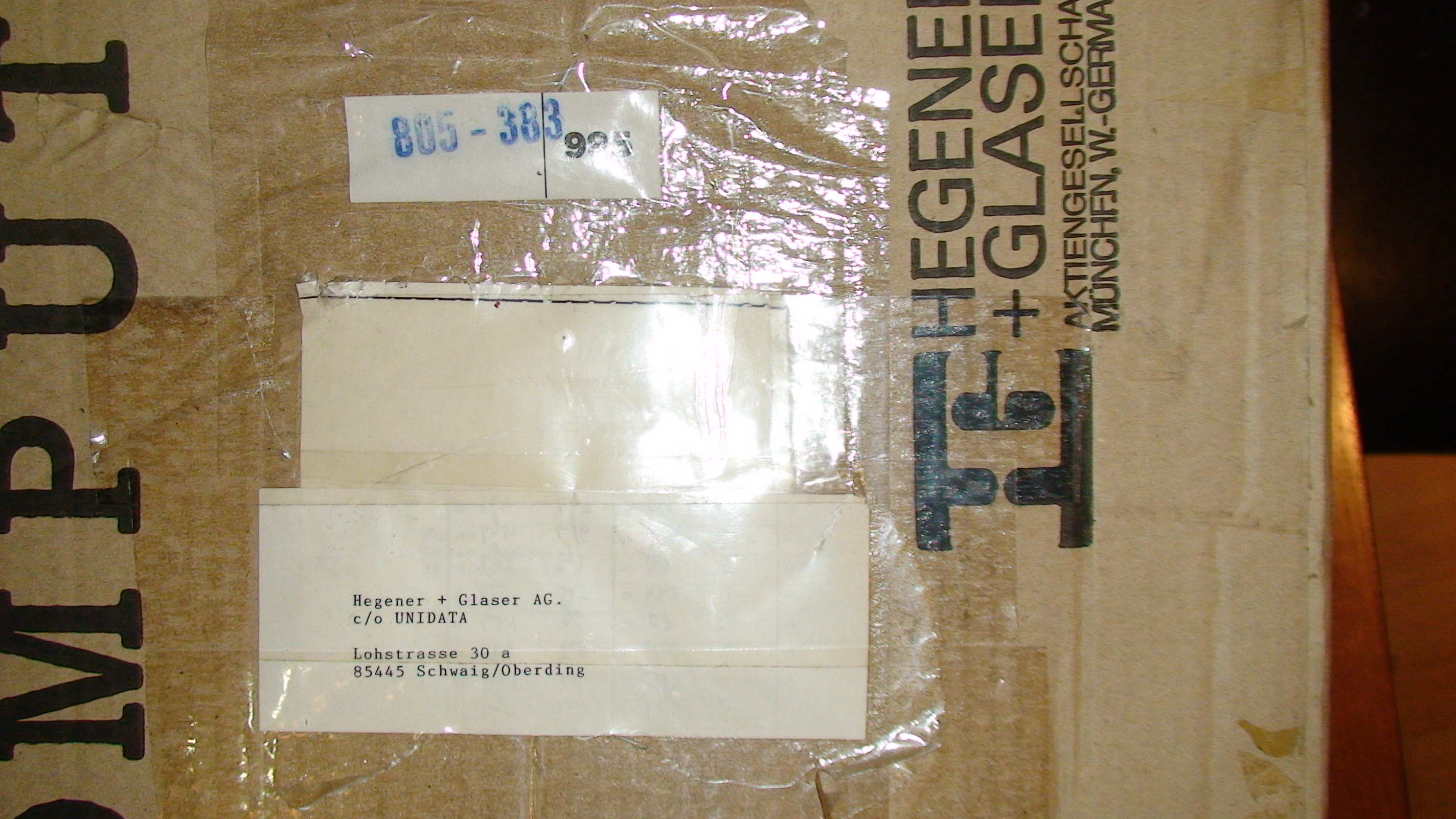
Some of the labels for different destinations: Schwaig/Oberding, Berlin, Zurich etc...
HR 4000 05073 WM (WM90 #3) Characteristics
Board
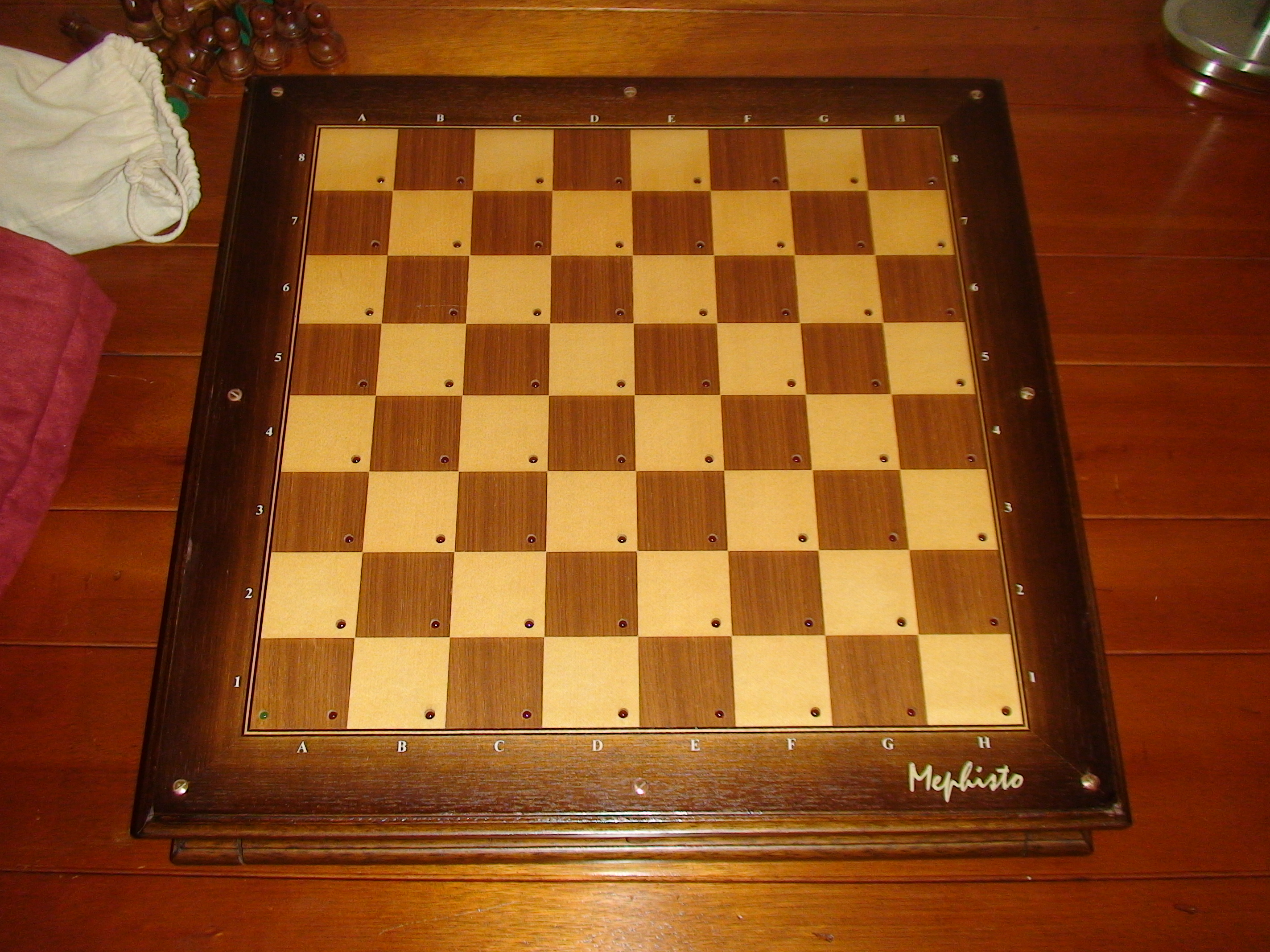
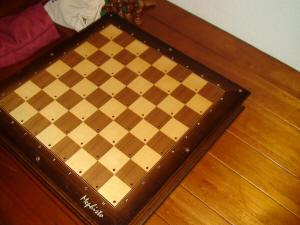
Drawer and Hardware
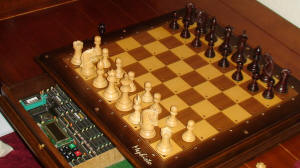
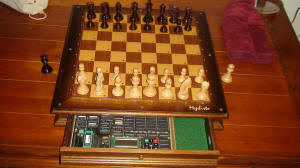
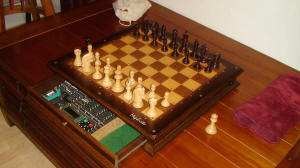
Hardware Details
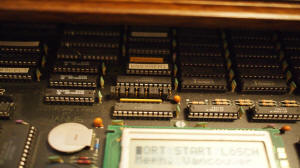
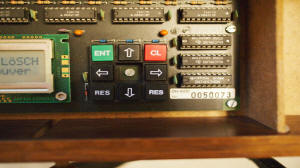
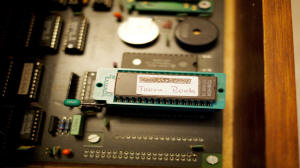
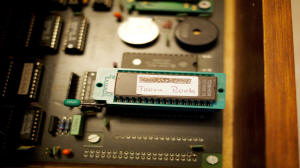
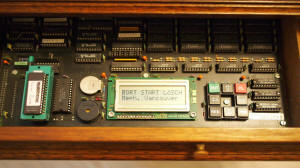
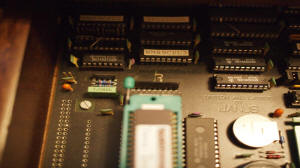
The first photo shows clearly the labels on 2 circuits: WM89CPU3 and
WM89MEM1.
The second photo shows the serial Id Number: HR4000 005073.
The third and fourth photos show the EPROM with its label "Tourn.
Book".
On the top, of the socket, the number 3 is written.
The fifth gives a whole vision of the PCB in the drawer.
The screen display shows the initial information and the name of the
Program: "Meph. Vancouver".
The last photo of this series shows the number 3 written in white on
the PCB (at the top of the eprom socket).
Three Fans
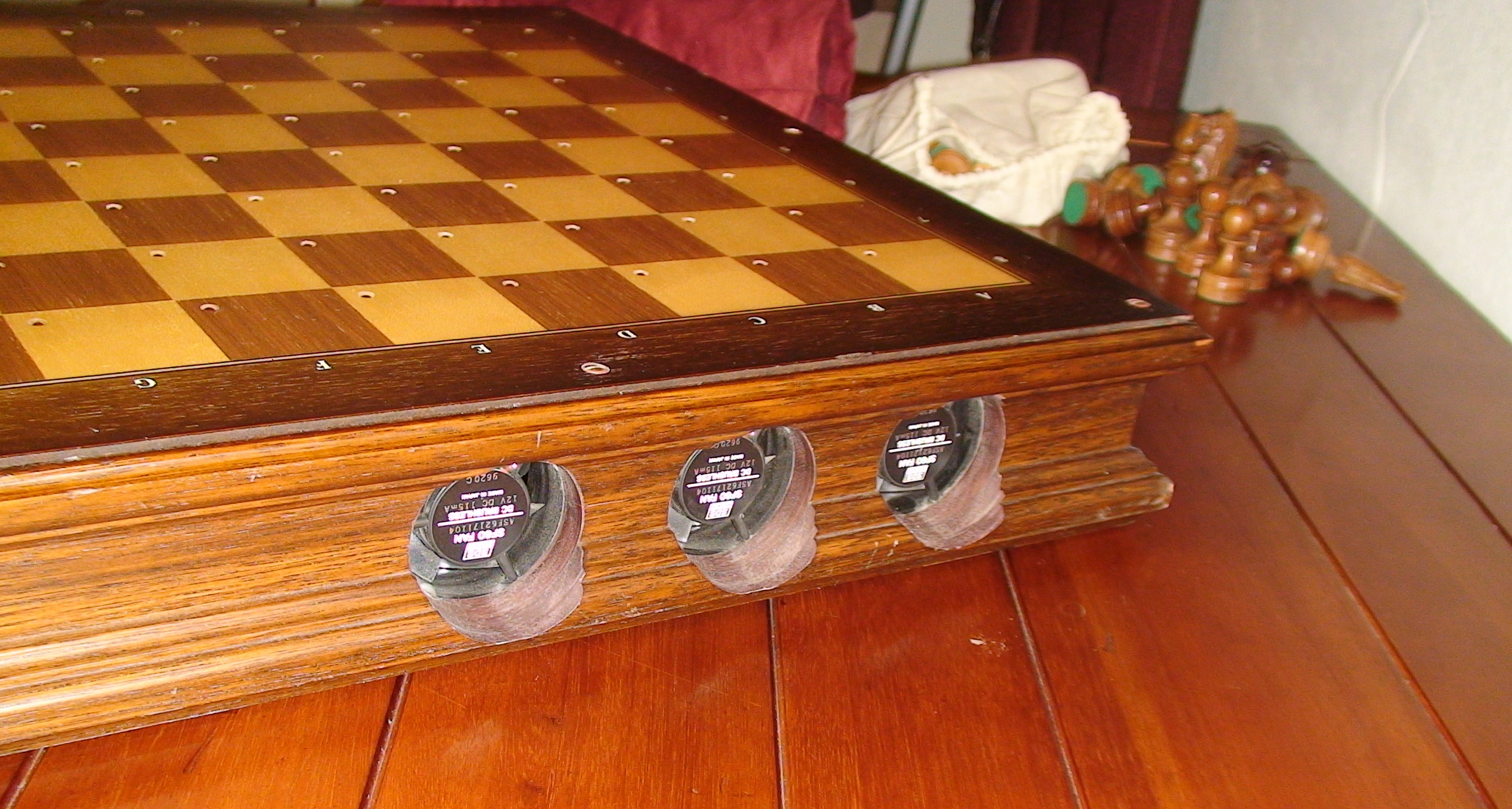
Judiciously, these three fans are sucking the air from the drawer to
the exterior. In fact, in operation, the drawer is open and the
ventilation is particularly efficient. The noise is minimal.
Metallic Bottom Plaque and HG-id-number
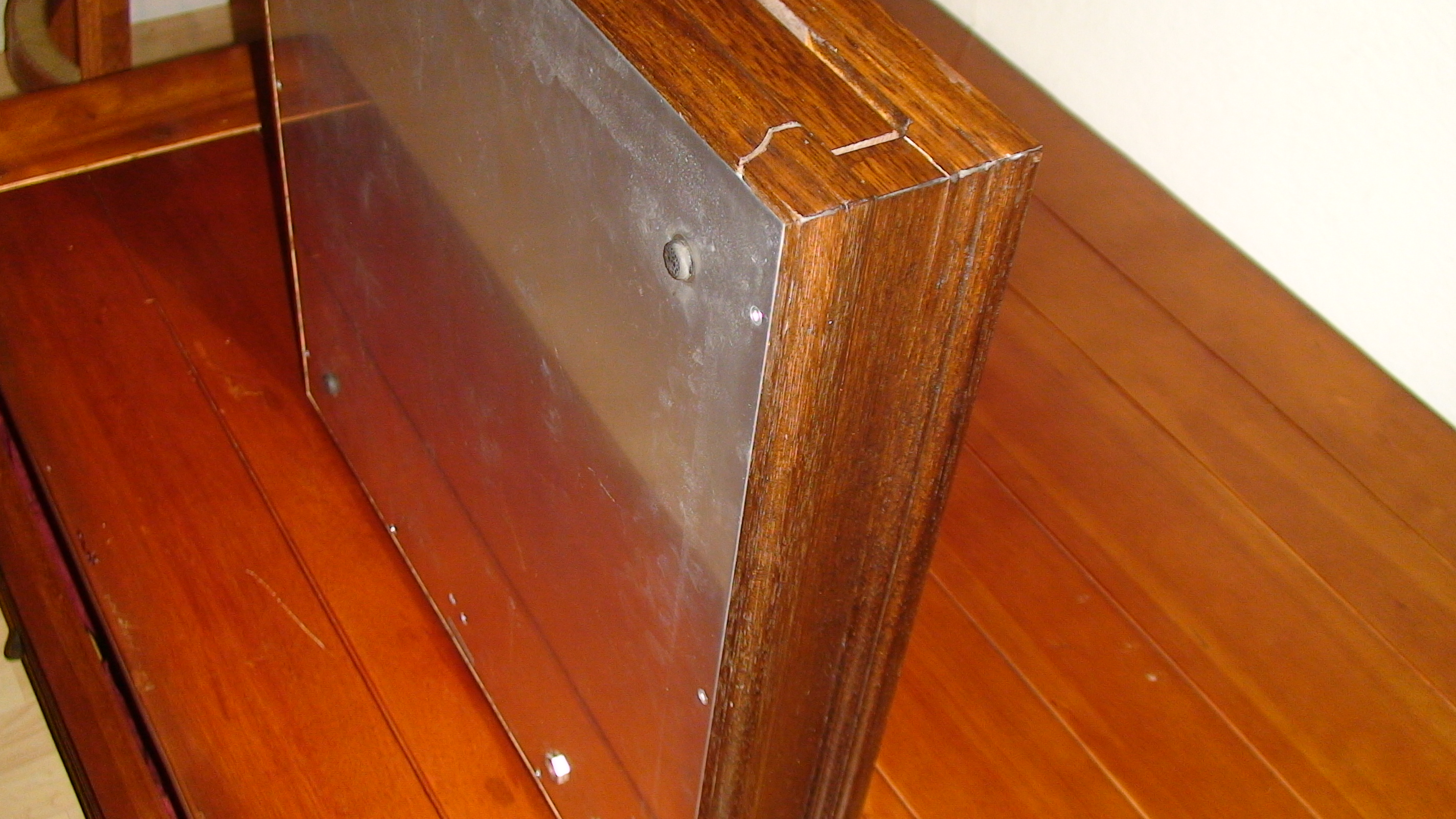
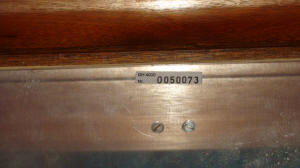
Completing the cooling dispositive, the
metallic plate conductive of the heat participate to the cooling of
the computer. However, the heat must have been the nightmare of the
engineers when the game was going for hours...
Participation and Results of the WM to Major Events
___________________________________________________
World Microcomputer Chess Championship Lyon 1990
|
Rank |
Program |
Country |
Score |
Games |
SOS |
SoDOS |
Title |
|
1 |
Mephisto |
 GBR GBR |
6.5 |
7 |
27.0 |
24.25 |
World Microcomputer Chess Champion |
|
2 |
Echec 1.9 |
 FRA FRA |
5.5 |
7 |
28.0 |
20.75 |
|
|
3 |
Gideon |
 NLD NLD |
5.5 |
7 |
26.5 |
17.25 |
|
|
4 |
The King |
 NLD NLD |
4.0 |
7 |
27.5 |
|
|
Finales (Lyon,
1990)
|
|
01 |
02 |
03 |
04 |
05 |
06 |
07 |
08 |
09 |
10 |
11 |
12 |
|
Tot |
T/B |
| 01 |
Mephisto WM (Lang) |
xx |
= |
1 |
1 |
1 |
1 |
1 |
|
|
1 |
|
|
|
6.5 |
24.25 |
| 02 |
Echecs 1.9 (Baudot) |
= |
xx |
= |
1 |
1 |
|
1 |
1 |
= |
|
|
|
|
5.5 |
20.75 |
| 03 |
Gideon (Schroeder) |
0 |
= |
xx |
1 |
1 |
1 |
|
|
|
1 |
|
1 |
|
5.5 |
17.25 |
| 04 |
The King (de Koning) |
0 |
0 |
0 |
xx |
|
1 |
1 |
|
1 |
|
1 |
|
|
4.0 |
10.00 |
| 05 |
Check Check |
0 |
0 |
0 |
|
xx |
= |
|
|
1 |
|
1 |
1 |
|
3.5 |
7.00 |
| 06 |
Patzer |
0 |
|
0 |
0 |
= |
xx |
1 |
= |
|
|
1 |
|
|
3.0 |
7.75 |
| 07 |
Chess Simulator |
0 |
0 |
|
0 |
|
0 |
xx |
1 |
|
1 |
|
1 |
|
3.0 |
7.00 |
| 08 |
BB |
|
0 |
|
|
|
= |
0 |
xx |
0 |
1 |
= |
1 |
|
3.0 |
6.25 |
| 09 |
Nightmare |
|
= |
|
0 |
0 |
|
|
1 |
xx |
= |
= |
0 |
|
2.5 |
7.75 |
| 10 |
Cumulus |
0 |
|
0 |
|
|
|
0 |
0 |
= |
xx |
1 |
1 |
|
2.5 |
4.25 |
| 11 |
Nest |
|
|
|
0 |
0 |
0 |
|
= |
= |
0 |
xx |
= |
|
1.5 |
3.50 |
| 12 |
Delta |
|
|
0 |
|
0 |
|
0 |
0 |
1 |
0 |
= |
xx |
|
1.5 |
3.25
|
_____________________________________________________________________________
North American Computer Chess Championship in Reno, Nevada
(1989)
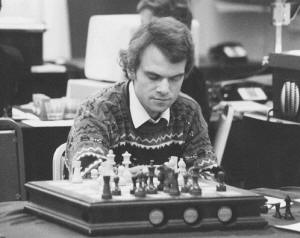
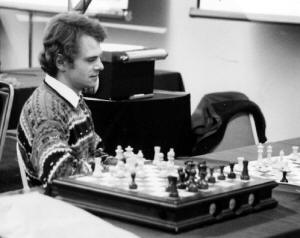
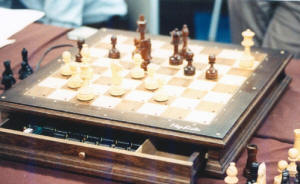 Richard Lang playing the WM at the
20th ACM, Reno, 1989 (Photo Monty Newborn)
Richard Lang playing the WM at the
20th ACM, Reno, 1989 (Photo Monty Newborn)
Source:
http://www.computerhistory.org/chess/full_record.php?iid=stl-431f4cc15086b
At the 20th Association of Computing Machines (ACM), Mephisto WM took the third place after
Carnegie Mellon University program (first) and Deep Thought
(second).
_______________________________________________________________
Anatoly Karpov versus Mephisto
WM (0, 1), Munich, 1990
Slav Defense: Steiner Variation
1. d4 d5 2. c4 c6 3. Nf3 Nf6 4. Nc3 dxc4 5. a4 Bg4 6. Ne5 Bh5 7. f3
Nfd7
8. Nxc4 e5 9. Ne4 Bb4 10. Bd2 Qh4 11. g3 Qe7 12. Bxb4 Qxb4 13. Qd2
Qxd2 14. Kxd2 exd4 15. Ned6 Ke7
16. Nxb7 Na6 17. Bh3 Rab8 18. Nba5 Rhc8 19. f4 f6 20. e3 dxe3 21.
Kxe3 Nb4 22. Kf2 Nd3 23. Kg2 Nxb2
24. Rhe1 Kd8 25. Nd6 Rc7 26. g4 Bg6 27. f5 Ne5 28. fxg6 hxg6 29.
Rab1 Rb4 30. g5 Ke7 31. Re4 Rxe4
32. Nxe4 Nxa4 33. Ra1 Nb6 34. Nc5 Ke8 35. Nab7 Nf7 36. gxf6 gxf6 37.
Rxa7 Ke7 38. Ra6 Nd5 39. Kg3 Ne5
40. Bg2 Ne3 41. Bh1 g5 42. Na5 Kd6 43. Ne4 Ke7 44. Nc5 Kd6 45. Ncb7
Kd7 46. Ra8 c5 47. Rh8 Ke6
48. Nb3 Nf5 49. Kf2 Nd3 50. Ke2 c4 51. Na1 Nf4 52. Ke1 c3 53. Nc2
Rc4 54. Kd1 Rc7 55. Re8 Kf7
56. Rd8 Ke7 57. Nb4 Ne3 58. Ke1 c2 59. Nxc2 Rxc2 60. Rd2 Rc1 61. Kf2
Nc4 62. Rd4 Ne6 63. Re4 Rxh1
64. Rxc4 Rxh2 65. Kg3 Rb2 66. Na5 f5 67. Rc3 Kf6 68. Nc4 f4 69. Kf3
Rh2 70. Rc1 Rh3 71. Ke4 g4
72. Re1 Rb3 73. Rg1 g3 74. Rg2 Rc3 75. Nd2 Re3 76. Kd5 Kf5 77. Nf1
Rd3 78. Kc4 Rd4 79. Kc3 Kg4
80. Rg1 Kf3 81. Nd2 Kf2 82. Rf1 Ke2 83. Rg1 Rd3
Source: www.chessgames.com
________________________________________________________
International Master title winner, Dortmund-C,
1990
Peter Buecker versus Mephisto WM (0, 1)
King's Gambit: Accepted. Fischer Defense
1. e4 e5 2. f4 exf4 3. Nf3 d6 4. Bc4
Be6 5. Bxe6 fxe6 6. d4 Qf6 7. e5 Qf5 8. O-O g5 9. Nxg5 Qxg5
10. Rxf4 Qg7 11. Qh5 Ke7 12. Nc3 Nc6 13. Rg4 Qf7 14. Qh4 Kd7
15. Bg5 dxe5 16. Rf1 Qe8 17. Ne4 Nxd4 18. Bf6 Be7 19. Rg7
Qf8 20. Qh5 Nxf6 21. Nxf6 Kc8 22. Rf7 Qd8 23. Qxe5 Qd6 24.
Qe4 Nc6 25. Nxh7 Qd5 26. Qxd5 exd5 27. R1f5 Bc5 28. Kf1 Bd6
29. g4 Bxh2 30. g5 Nd8 31. g6 Nxf7 32. g7 Rg8 33. Rxf7 Be5
34. Rf8 Kd7 35. Rxa8 Rxa8 36. Nf8 Ke7 37. g8=N
Source: www.chessgames.com
_____________________________________________________
Winner of the German
Blitz Championship
